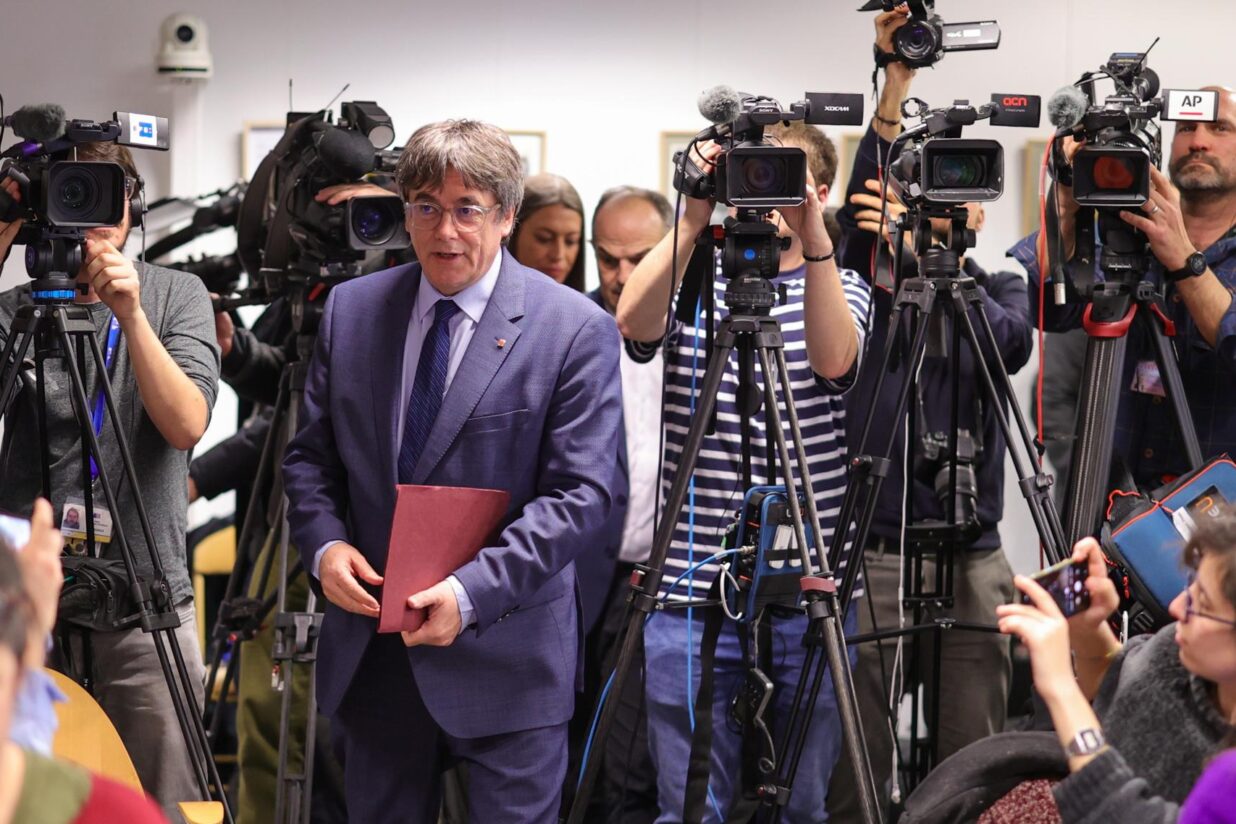09.11.2023 - 18:38
|
Actualització: 17.11.2023 - 17:41
When analysing the pact between Puigdemont’s party, Junts and the PSOE, which will finally allow Pedro Sánchez to take office, it is necessary to distinguish between three elements: the pact itself, the guarantees of this pact and the amnesty law. As far as the latter is concerned, I will not be able to talk about it until it is published and can be read, but I can talk about the other two.
The Pact is very ambitious and represents a significant change in the scenario. However, it has a serious problem that I would like to point out from the outset: there are no guarantees of compliance, and given the PSOE’s track record, this is a significant risk.
Junts claims that the international verification mechanism and its own ability to overthrow the Spanish government at any time are the guarantees of the pact. In my view, these are insufficient guarantees, but I accept that only time will tell.
Speaking specifically about the political pact signed between the Junts and the PSOE, I have to say that I was very surprised by the way it was drawn up, especially in terms of its technique. It has the structure, technique and narrative of a peace agreement, not a legislative agreement, not a typical pact in a European democracy. In this sense, it goes far beyond anything that has been signed before and it cannot be compared to anything that we have seen so far.
I mention this technique of peace agreements because I believe that we can all make a mistake if we do not take it into account. For example, saying that one party will defend a referendum on self-determination and the other the unity of Spain would sound ridiculous in a normal political negotiation. But in a peace process, this is exactly the right technique, to start from the disagreement, because it is from this disagreement that the international team of mediators will propose the new steps to be taken.
But once again, we know nothing about this international mediation mechanism, and this lack of clarity is worrying from the outset. I must make it clear that this is not an unusual situation: In order to be effective, international conflict resolution mechanisms operate in the shadows and with discretion. And it is that way because there is a recognition of authority on the part of both parties to the negotiation. Another worrying lack of clarity is that we do not know whether the PSOE really recognises this authority or not. But it’s true that Socialists acknowledge it in writing. And this, together with the change in the PSOE’s public narrative, are precisely the main values of the signed document.
Because the narrative unfolded in the agreement, as a narrative shared by both parties, contains enough new elements to signify a very radical shift in the Socialist position.
For the first time, the Socialists are recognising a narrative that frames the relationship between Catalonia and Spain in an historically unresolved national conflict and, in recent years, in a lack of democratic response from Spain, which needs to be addressed and which needs to have a strictly political solution. Not a repressive solution like the one ordered by the PP in 2017, incidentally with the support of Pedro Sánchez.
The document contains many details in this sense. First of all, the reference to the Nova Planta decrees and the violent abolition of the Catalan constitutions. A reference that is far from trivial or anecdotal, because it goes to the root of the conflict and invokes the first and original sovereignty of Catalonia.
Also significant is the moment when the text bluntly speaks of “the distance between our national projects”. This implicitly places each party in a different nation.
And there is the final reference to the Catalan parliament as the legitimate representative of the people, although it could be clearer and better. It does not say, as Junts implies, that it recognises that only the people of Catalonia will have the final say, but neither does it deny this, which has been a taboo in the PSOE’s discourse until now.
Anyway, for me the most important point of the document is when the Socialists, agreeing with Junts, recognise that there is a conflict that “only democratic politics can channel to seek a solution, given that six years on the fundamental issue remains unresolved”.
Here, then, is the PSOE’s acknowledgment that, six years after the proclamation of independence, the Catalan national conflict is not only there, but is still unresolved and in need of resolution.
To sum up, this agreement is an important milestone. It is ambitious, but it also runs the risk of providing no tangible guarantees for anything, while we wait to see how the international verification mechanism works.
In the end, I am sure that whether the signing of this agreement was a success or a mistake will be determined, as always, by time and the evolution of the conflict. People will speak out, mobilise and eventually vote. They will decide whether it makes sense or not. Street protests will once again become important. Meanwhile, Spain will enter a period of great destabilisation. We have seen this clearly today with the attack on Vidal-Quadras and the provocative speeches by Feijóo and Abascal.
The combination of all these factors, and realising whether we’re dealing with just mere words on paper or real change, is going to shape Catalan and Spanish politics in a brutal way in the coming months and years.
[Updated 10 November: My intuition has proved correct. Junts has clearly, and the PSOE indirectly, acknowledged that the declaration has already been written “with the support” of the international observers.]


